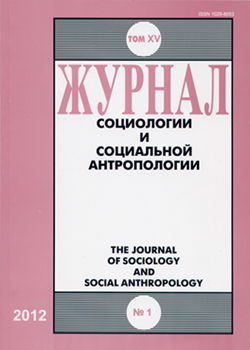The Rational and the Ambivalent in the Social Sciences
Keywords:
rational action, ambivalence, psychoanalysis
Abstract
In this essay I attempt to establish the centrality of a fundamental idea - ambivalence - as a psychological postulate that is essential for understanding individual behavior, social institutions, and the human condition generally. In this effort I examine the strengths and limitations of an alternative postulate - the rational-choice model of behavior - and argue for supplementing it with a conception of ambivalence. The idea of ambivalence is essential for explaining phenomena such as reactions to death and separation, but also is required in our understanding of love, social organizations, social movements, consumer attitudes, political practices and institutions, as well as the fundamental values of the Western democratic tradition.
Published
2012-02-20
How to Cite
Smelser, N. (2012). The Rational and the Ambivalent in the Social Sciences . ZHURNAL SOTSIOLOGII I SOTSIALNOY ANTROPOLOGII (The Journal of Sociology and Social Anthropology), 15(1), 22–46. Retrieved from http://jourssa.ru/jourssa/article/view/790
Section
Sociology: Profession and Vocation

